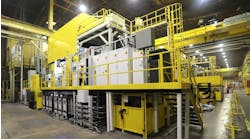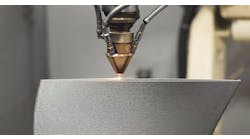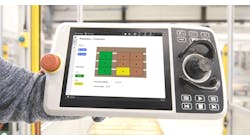Resiliency has always been important for any manufacturing business but it has become an even more essential quality given the market challenges that have accelerated since 2020. Now that it looks like these times of fluctuating supply chains, limited talent supplies, and evolving customer expectations are here, manufacturers cannot afford to miss any business opportunities because of their outdated tech stack.
More than ever, manufacturers depend on foundational process management solutions like enterprise resource planning (ERP) to help manage and maintain business operations efficiently, remotely, and securely, as they feel the pressure to digitally transform. According to a State of Manufacturing Digital Transformation survey by ECI Software Solutions, 70% of manufacturers use an ERP solution to drive their day-to-day operations, and nearly 95% say that their ERP helped them manage the impacts of the pandemic. As challenges like inflation and hiring magnify the existing difficulties businesses face daily, the need for ERP solutions to help mitigate strain will become even more critical.
To help providers manage these fluctuating variables better, ERP technology is adapting and evolving as new innovations in this space are introduced. Let’s discuss the major trends enabling manufacturers to maintain resiliency and thrive in this difficult market:
The no-one-size-fits-all world. Eventually, all businesses will be using the cloud at some capacity. However, we are still a few years from this transition, as there is no “one-size-fits-all” approach to the cloud computing. Additional data from ECI’s survey shows 80% of manufacturers say their ERP is at least partially in the cloud, meaning that on-premises and hybrid ERP approaches remain present.
There always will be companies that find value in keeping both on-premises and cloud-based enterprise solutions, but for businesses not yet on the cloud regulatory compliance, resources, and a flakey internet are just some of the reasons holding them back.
Cloud-based applications play a critical role in allowing new levels of resilience, flexibility, and cybersecurity, as remote and hybrid work arrangements are here to stay. Cloud-based ERP systems are built to be modular, permitting business customers to select and deploy only the applications (or modules) that they specifically require. Each of these modules incorporates its own cybersecurity tools and capabilities.
With cloud providers continuously investing in the most up-to-date security practices, this provides customers with a secure software environment at a fraction of the cost. Having the ability to lean on a cloud provider for security is increasingly beneficial for companies that have been resistant or hesitant to adopt a cloud-first approach in some capacity, as well as for the small-to-midsize businesses without the resources to support the hybrid workplace approach.
Intelligent and mobile, for time management. We can expect ERP to get smarter every year, as developers make augmented intelligence tools accessible to average workers. Artificial intelligence (AI) and machine learning (ML) continue to bring more intelligent systems and generate more powerful business data that can be converted into actionable insights for process improvements, increase equipment effectiveness, and decreased downtime.
Simultaneously, though mobile ERP is not a new concept to manufacturers, innovation in this space has changed tremendously to address customers’ expanding expectations. Through machine intelligence, businesses can connect the robust data in their ERP systems directly with real-time machine performance information, which can then be sent out to the user via mobile ERP, making it more consumable. By creating real-time data, mobile ERP extends overall functionality and data collection, which supports smarter, better-informed business decisions and enriches the customer experience.
Dealing with the supply chain. Along with the ongoing disruptions we are seeing increased integration between supply-chain management (SCM) and ERP systems. Because production and material availability are inextricably linked, the integration of these two enterprise systems will grant manufacturers and distributors the highest levels of business efficiency and agility. Vendors will continue to improve communication efficiency between businesses and key players by expanding their system integration capabilities. This will result in fewer redundant tasks, enhanced process efficiencies, and increased business-data visibility.
Technology advancements also are driving significant innovation in this space, and there is a wider spotlight on the use cases for AI in SCM. All organizations today need to take advantage of these technology advancements to gain maximum visibility into their supply chains, and increase flexibility with additional sourcing approaches. Businesses leveraging these tools can anticipate potential disruptions throughout their supply chain and strategize ways to avoid disruptions in advance, or ways to handle them more effectively.
ERP and 3DP advancing together. The ongoing development of ERP systems will be impacted by the evolution of 3D printing, to address the challenging supply-chain issues and printing environments. With 3DP/additive manufacturing processes becoming more integrated into ERP systems, the digital thread that is established creates the opportunity for seamless modification and testing of the parts being produced.
As customers begin demanding simpler interfaces and improved return on investment (ROI), I expect the ERP space will see a redefining moment. Manufacturers who have not invested already will need to explore affordable, intelligent ERP solutions that can help them accomplish more with fewer resources, and gain a competitive advantage during this time of high disruption and uncertainty.
Those manufacturers with an ERP in place must be open to exploring new trends that will allow them to remain agile, and foster a more resilient workplace, to prepare themselves for emerging market challenges.
Matt Heerey, the president of ECI Software Solutions' Manufacturing Division.









